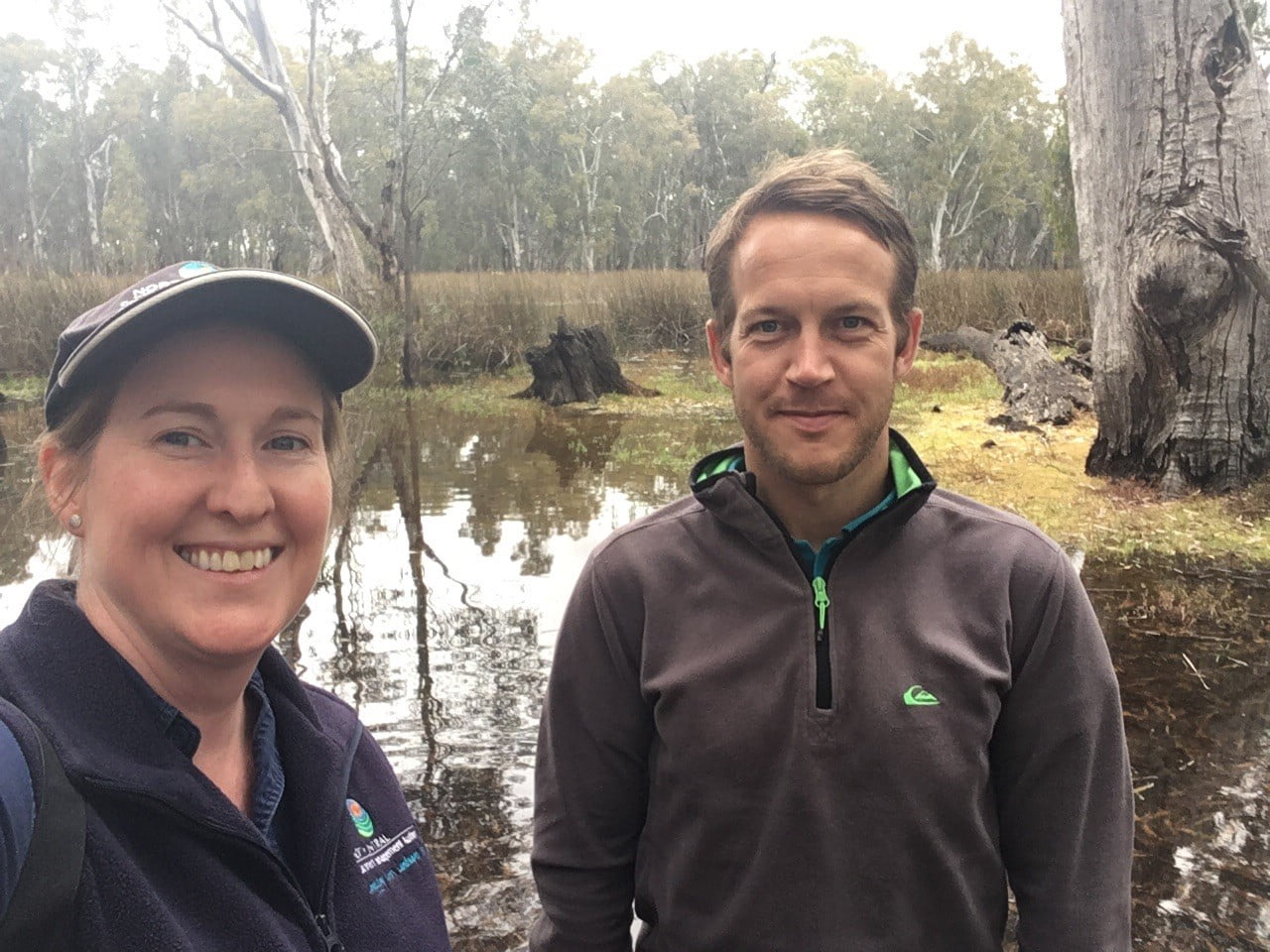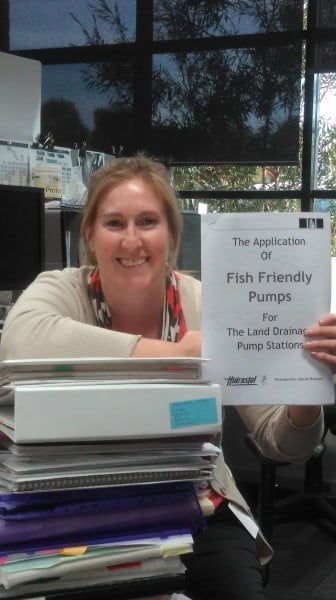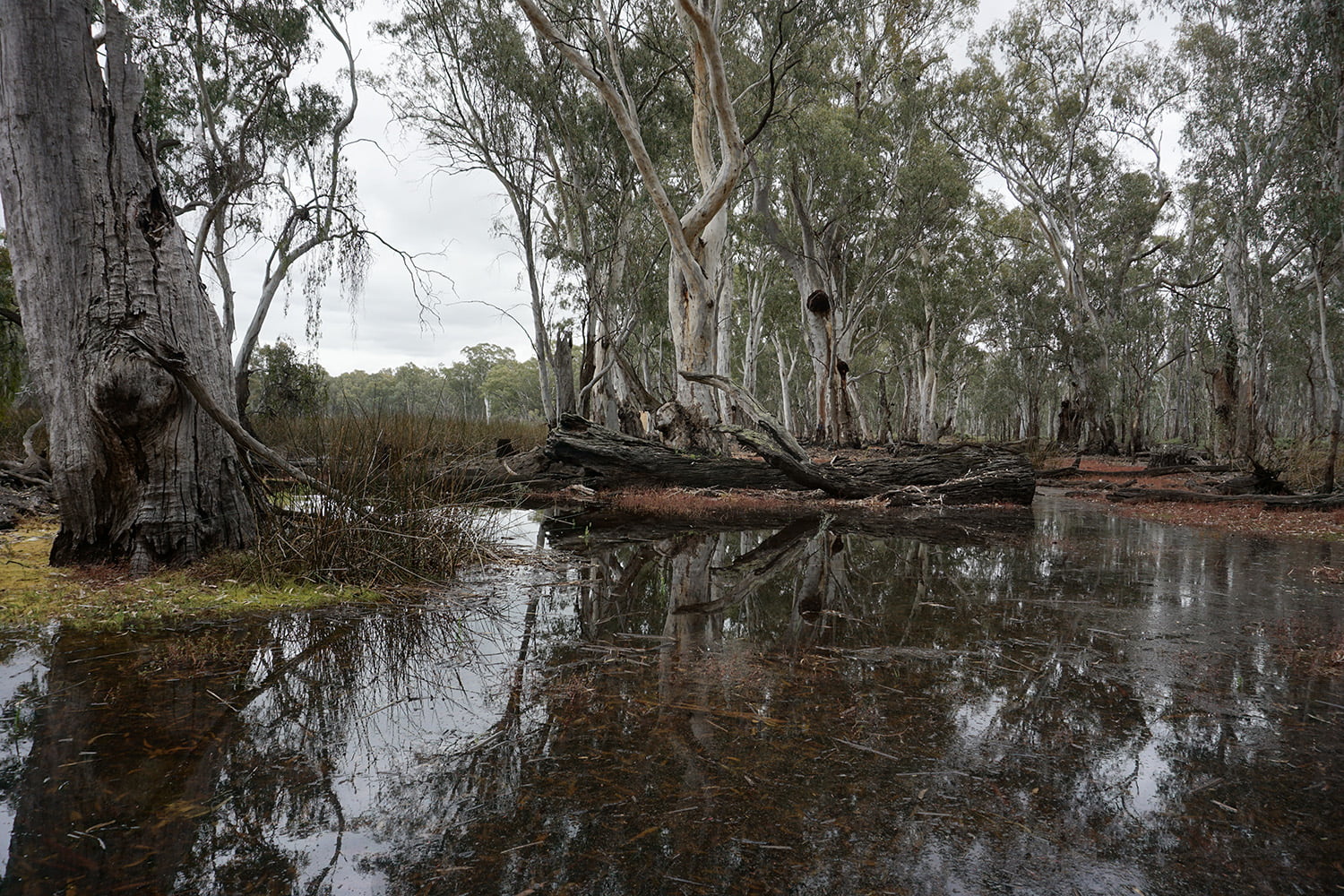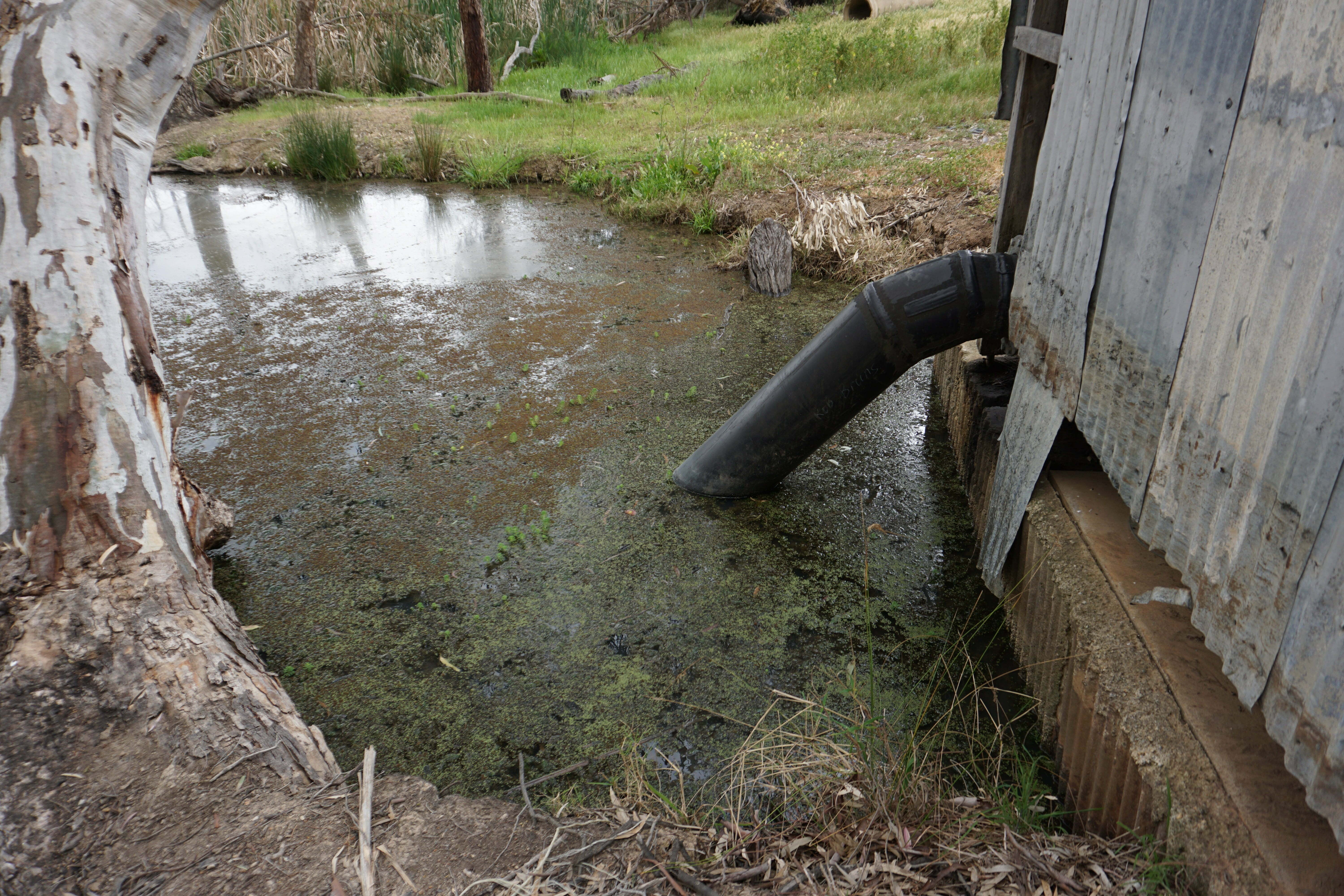Twinning Partnership
Amy Russell – North Central CMA, Joel Rawlinson – Dept. of Environment, Land, Water and Planning
Our Goals:
Amy wanted to develop her project planning skills, so with input from mentor Joel, Amy worked on developing up a completely new project. Being a completely new, they had to work within the fairly major constraint of having zero budget.
Ultimately Amy chose to look at the need and feasibility of the use of pump screens in Victoria to reduce the pump related deaths of fish and other aquatic species. Once the project topic was decided, key tasks involved in this project were:
- Researching the problem and what is currently known about the issue
- Meeting and discussing the project idea with industry and research specialists
- Developing up a project proposal
- Data collection and the development a monitoring plan for the project
- Raising the profile of issue with the community through media
- Searching for possible future funding sources for the project.

Our Actions:
While limited by having no budget, Amy with Joel’s help was able to achieve the following during her time in the Twinning Program:
- Reviewed research on this issue and consider at examples of the use of pump screens from elsewhere in Australia and the world
- Met with AWMA, Arthur Rylah Institute and ecologists to discuss possible impacts, the need for pump screens and potential monitoring requirements.
- Finding that there was little local knowledge on the impact of irrigation pumps, Amy scoped out a monitoring plan to determine if there was a need to invest in pump screens in Victoria
- Cost out the local manufacture of suitably sized pump screens
- Developed media to raise the profile of this issue in the community, and to source knowledge from the community
- Met with irrigators to discuss their experience and the impact pump screens might have on their enterprise.
- Developed a project proposal
- Sought out potential future funders of a monitoring program around the impact of pumps on aquatic species.

Key Learnings:
The wider impact of agricultural pumps on aquatic life has not been considered at a high level in Victoria, so Amy and Joel’s project has taken an important first step into this space.
The impact of pumps on aquatic life is still largely unknown in Victoria, but Amy and Joel’s project has started the discussion, and the project proposal developed through this partnership offers a clear way forward for establishing the knowledge that will allow waterway managers to make informed decisions on this issue.

What did you personally gain from the Waterway Management Twinning Program?
“The Twinning Program provides an opportunity to push yourself out of your comfort zone working on a project that makes you challenge yourself and your way of thinking while having a great time.
The program ended up being quite different than what I first expected it to be. It was an opportunity to work with an industry expert and work on a project that had no boundaries (except money). The only expectations were the ones I put on it myself and therefore it was a really different way of developing a project. I also got a lot out of working with my mentor and feel that we made a really good team. I appreciate all the knowledge he’s given me about pump screens, I have learnt much more than I thought I would.
I really value the range of people I have met during the program (people who I would have never spoken to otherwise).
Finally I feel I have become much more confident in pushing my ideas and pursuing them, and approaching industry experts about this particular project. I have also picked up a few tips and tricks for presenting and running group sessions (the importance of why).”
– Amy
The Twinning program was a unique opportunity to step away from work and focus on personal development. It also provided a chance to having fun with like-minded people. I learnt skills in mentoring, especially managing a mentor/mentee relationship in a circumstance where I rarely saw the mentee. This challenged the way in which I would ordinarily approach this task.
– Joel

